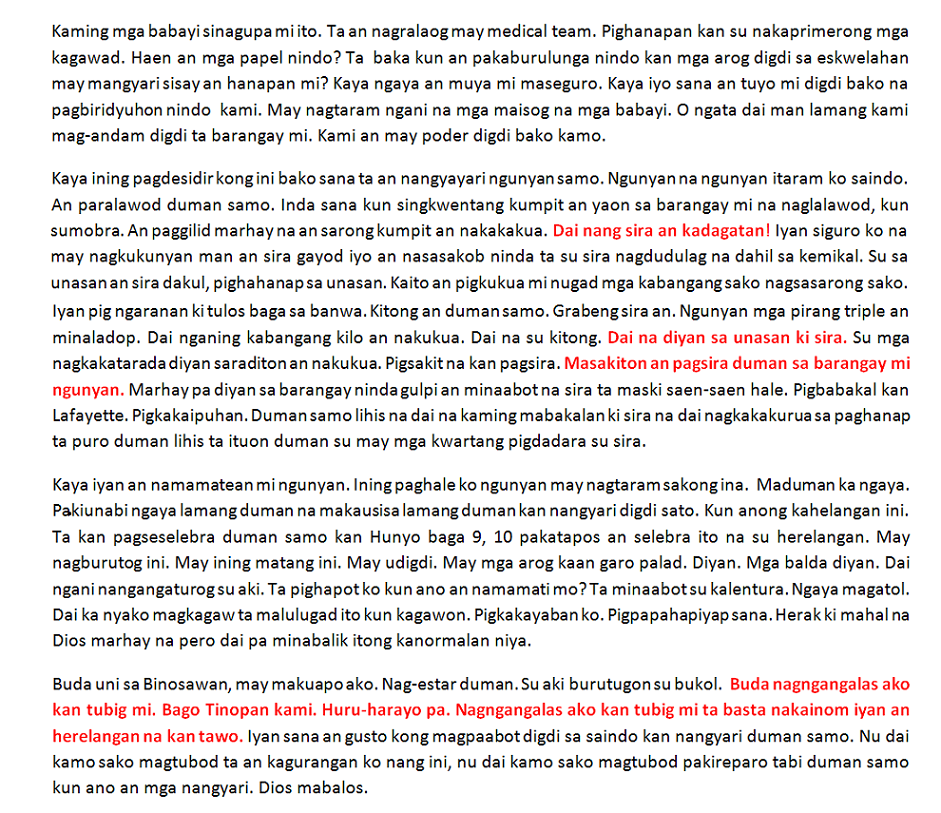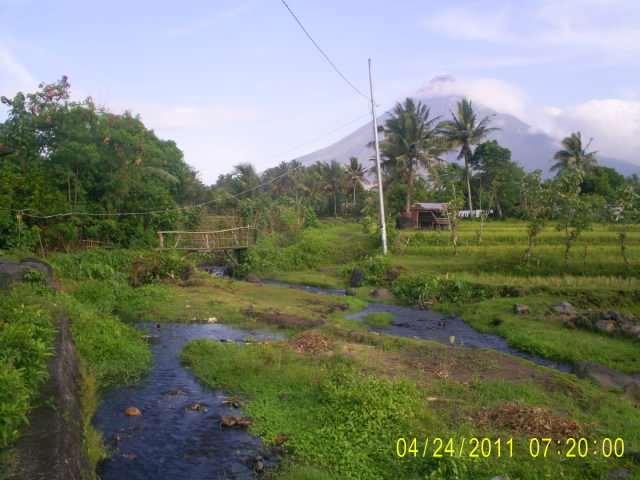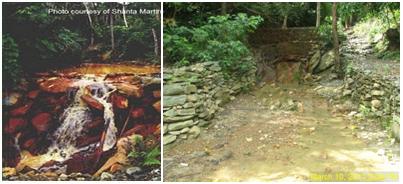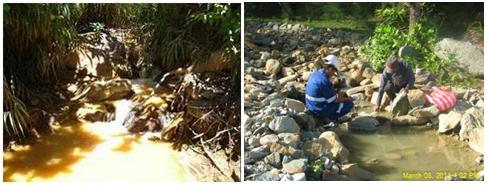By Lisa Ito
Contributed to Bulatlat
Vol. VIII, No. 19, June 15-21, 2008
Bicolanos and environmental advocates want the government’s flagship mining project in Rapu-Rapu terminated before it resumes operations under new Korean owners next month.
The mine in Rapu-Rapu Island , off the coast of Albay province, has been estimated to generate $350 million a year from revenues from annual production of 11,000 tonnes of copper and 13,000 tonnes of zinc.
The open-pit mine was previously owned by Lafayette Mining Limited (LML), an Australian firm and had started operations in April 2005. The project caused two mine spills, a landslide and several fish kills from June 2005 to October 2007.
Mounting debts and community opposition from the local to the international levels forced Lafayette to go under voluntary administration in December last year.
Ownership of the mine is currently under the control of Philco Resources Limited (Philco), a joint venture company registered in Malaysia and owned by Korean firms LG International Corporation and state-owned minerals explorer Korea Resources Corporation (Kores). Philco bought Lafayette ’s 74 percent stake in the mine last March.
Officials of Lafayette Philippines, Inc. (LPI), the Filipino management team running the Rapu-Rapu project since 2006, resigned this first week of June after negotiations with Philco fell through. The mine is expected to resume operations under its new Korean owners by July.
But Church groups, Bicolanos, and environmental groups now clamor for the Korean investors go the same way as Australian-owned Lafayette : pack up and out of Rapu-Rapu island for good.
Total closure sought
Sorsogon Bishop Arturo Bastes last Friday called on the Philippine government to impose the “total closure” of the Rapu-Rapu mine, in the wake of month-long protests from Rapu-Rapu residents, Bicolano groups, and environmental organizations.
.
In a statement posted at the Catholic Bishops Conference of the Philippines (CBCP) website, Bastes said that mining “ruined not only the environment but the economy” of Rapu-Rapu island. Bastes is the former head of a Presidential investigative commission which concluded in November 2006 that LPI engaged in irresponsible mining and recommended that the project be terminated.
The bishop said Rapu-Rapu mining is supposed to be the government’s “flagship” project in its revitalized mining industry program but it turned out to be a “fiasco.”
Korean Embassy picketed
Philippine environmental groups launched the first salvo of protests against the new mine owners, starting with a picket in front of the Korean Embassy in Makati City last June 11.
A crowd of around 50 fisher folks and residents of Rapu-Rapu island, environmental advocates, and supportive Korean citizens protested in front of the Embassy Tuesday morning and called on South Korean Ambassador Hong Jong-ki to support the pullout of Kores and LG International’s investments in the Rapu-Rapu mine.
Clemente Bautista, national Coordinator of militant environmental group Kalikasan-People’s Network for the Environment, said, “There is no reason to continue the Lafayette mining project. Its three-year operation in Rapu-Rapu Island has brought so much environmental destruction, community displacements, human rights violations and livelihood loss to the local people.”
Bicol residents expressed their rejection of the mine’s new Korean owners. “We are now just trying to recuperate from the division and damages Lafayette brought to our people. The urgent action is the rehabilitation of the island and the compensation of mining-affected people not another mining operation,” said Antonio Casitas, spokespersons of Sagip Isla Sagip Kapwa, a local organization leading the mining opposition in the island.
“Large-scale mining is not technically, economically and socially feasible in the small-island ecosystem of Rapu-Rapu. The Korean companies are not welcome in the island and they will suffer the same fate of Lafayette ,” stressed Arieto Radores, spokeperson of Ugnayan ng Mamamayan Laban sa Pagmimina at Kumbersyong Agraryo (UMALPAS Ka-Bikol or Unity of People Against Mining and Agricultural Conversion).
Protest song launched
An environmental NGO also expressed its opposition to the Rapu-Rapu project by releasing a CD of protest songs. The Centre for Environmental Concerns (CEC-Phils), which promotes progressive and sustainable environmental advocacy, launched a music CD entitled Rapu-Rapu Atbp: Taghoy ng Kalikasan on the eve of World Environment Day on June 4.
Named after the controversial mining project, the album’s title and carrier single is “an indictment of the plunder, pain and destruction caused by the mining project in Rapu-Rapu”, said CEC-Phils Executive Director Frances Quimpo.
The mining operations will last for approximately seven years, but its negative impacts on the environment is expected to persist for decades after the mine closes, Quimpo said.
“We hope to help bring the issues faced by the environment and people of Rapu-Rapu to a wider audience through the song, to gather more popular support for the closure of the mine,” Quimpo added.
































































































































No comments:
Post a Comment